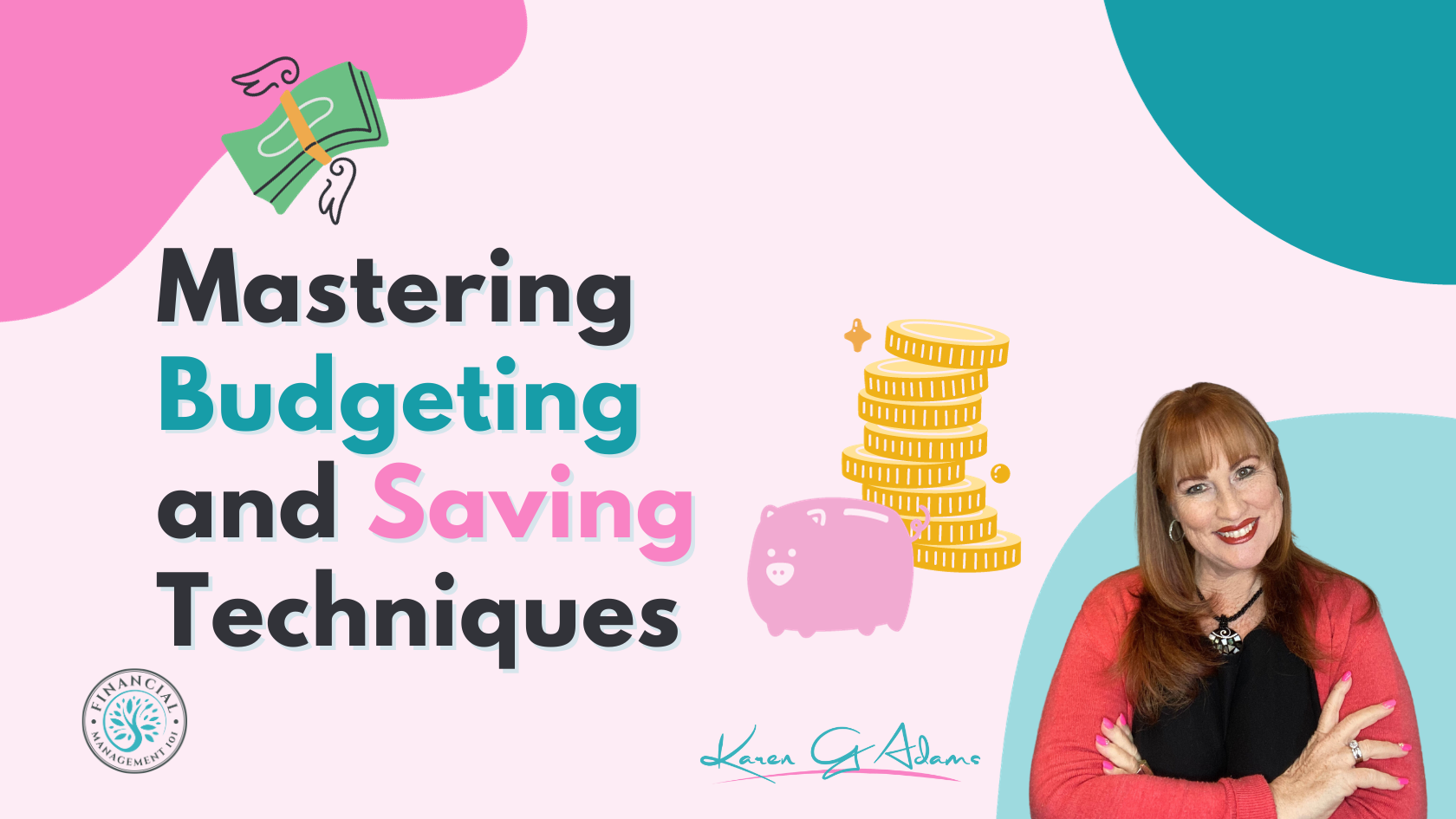Remember when we thought adults knew everything about money? Joke’s on us! But it’s never too late to learn. Here’s your crash course in Money 101.
Why Understanding Money Matters
Understanding money is essential because it influences every aspect of your life. From buying groceries to planning for retirement, money management skills can mean the difference between financial stability and stress. By learning how money works, you can make informed decisions that lead to a more secure and fulfilling life.
THE BASICS OF BUDGETING
Budgeting is the cornerstone of good money management. It helps you track income and expenses, ensuring you live within your means and save for future goals.
Action Steps:
- Track Your Income and Expenses: Write down all sources of income and all your monthly expenses. Use a spreadsheet, a budgeting app, or even a notebook to keep track.
- Categorise Your Spending: Divide your expenses into categories like housing, groceries, transportation, entertainment, and savings. This helps you see where your money is going.
- Set Budget Limits: Based on your income, set limits for each spending category. Be realistic but disciplined.
- Review and Adjust: At the end of each month, review your budget to see if you stayed within your limits. Adjust your budget as needed to better align with your financial goals.
Budgeting helps you control your spending, avoid debt, and save money. It’s the foundation of financial health.

Categorise Your Spending
Categorise your expenses to see where your money is going.
THE POWER OF COMPOUND INTEREST
Compound interest is a magical concept that can either work for or against you. Understanding it is crucial for managing both savings and debt.
Action Steps:
- Learn the Formula: Compound interest is calculated using the formula A = P(1 + r/n)^(nt), where A is the amount of money accumulated, P is the principal amount, r is the annual interest rate, n is the number of times interest is compounded per year, and t is the time the money is invested for.
- Start Early: The earlier you start saving or investing, the more time compound interest has to work its magic. Even small contributions can grow significantly over time.
- Pay-off High-Interest Debts: Compound interest can also work against you when it comes to debt. High-interest debt, like credit card debt, can quickly spiral out of control due to compound interest. Focus on paying it off as soon as possible.
By harnessing the power of compound interest, you can grow your savings and investments exponentially over time.
CREDIT SCORES AND THEIR IMPORTANCE
Your credit score is a numerical representation of your creditworthiness. It affects your ability to get loans, credit cards, and even rent an apartment. Maintaining a good credit score is essential for financial stability.
Action Steps:
- Understand the Factors: Your credit score is influenced by payment history (35%), amounts owed (30%), length of credit history (15%), new credit (10%), and credit mix (10%).
- Pay Bills on Time: Late payments can significantly damage your credit score. Set up automatic payments or reminders to ensure you never miss a due date.
- Keep Balances Low: Aim to use less than 30% of your available credit. High credit utilisation can negatively impact your score.
- Check Your Credit Report: Regularly review your credit report for errors and discrepancies. You can get a free report annually from each of the three major credit bureaus.
A good credit score opens doors to better loan terms, lower interest rates, and more financial opportunities.

The longer your money is invested, the more time it has to grow through compound interest, where your earnings generate additional earnings.
Long-term investments are assets that you plan to hold for an extended period, usually more than three years. They’re meant to grow in value over time and achieve your long-term financial goals, like retirement or for your child’s education.
THE BASICS OF INVESTING
Investing is a powerful way to grow your wealth over time. By putting your money to work in various assets, you can build a substantial financial cushion for the future.
Action Steps:
- Understand Different Types of Investments: Common investment types include stocks, bonds, mutual funds, and real estate. Each has its own risk and return profile.
- Start with Retirement Accounts: Take advantage of tax-advantaged retirement accounts like superannuation funds, 401(k)s and IRAs. These accounts allow your investments to grow tax-free or tax-deferred.
- Diversify Your Portfolio: Don’t put all your eggs in one basket. Spread your investments across different asset classes to reduce risk.
- Learn About Risk and Return: Higher potential returns usually come with higher risk. Understand your risk tolerance and invest accordingly.
Investing wisely can help you build wealth and achieve long-term financial goals, such as retirement or buying a home.
EMERGENCY FUND: YOUR SAFETY FINANCIAL NET
An emergency fund is a crucial component of financial stability. It’s a savings buffer that protects you from unexpected expenses and financial shocks.
Action Steps:
- Determine Your Target Amount: Aim to save 3-6 months’ worth of living expenses. This amount provides a cushion for emergencies like job loss, medical bills, or major repairs.
- Start Small and Build Up: If saving several months’ worth of expenses seems daunting, start with a smaller goal, like $1,000. Gradually increase your savings over time.
- Keep It Accessible: Store your emergency fund in a high-yield savings account where it can earn interest but still be easily accessible in case of emergency.
- Use It Wisely: Only dip into your emergency fund for true emergencies. Avoid the temptation to use it for non-essential expenses.
Having an emergency fund gives you peace of mind and financial security, knowing you’re prepared for unexpected situations.

SMART SPENDING: GETTING MORE BANG FOR YOUR BUCK
Being a smart spender means making informed choices that maximise the value of your money. It’s about prioritising needs over wants and finding ways to save on everyday expenses.
Action Steps:
- Differentiate Needs and Wants: Before making a purchase, ask yourself if it’s a necessity or a luxury. Prioritise spending on essentials and limit discretionary spending.
- Shop Smart: Look for sales, use coupons, and compare prices before making purchases. Online tools and apps can help you find the best deals.
- Plan Your Purchases: Avoid impulse buying by planning your purchases in advance. Make a shopping list and stick to it.
- Buy Quality, Not Quantity: Sometimes, spending a bit more on a high-quality item can save you money in the long run, as it lasts longer and performs better.
Smart spending helps you get the most value out of your money and prevents unnecessary debt.
THE IMPORTANCE OF FINANCIAL GOALS
Setting financial goals gives you direction and motivation. It helps you stay focused on what’s important and measure your progress over time.
Action Steps:
- Identify Your Goals: Think about what you want to achieve financially. This could include saving for a down payment on a house, paying off debt, or building an emergency fund.
- Set Specific and Measurable Goals: Make your goals specific and measurable. For example, “Save $10,000 for a down payment within two years” is more effective than “Save money.”
- Create a Plan: Outline the steps you need to take to achieve your goals. Break them down into manageable tasks and set deadlines.
- Review and Adjust: Regularly review your progress and adjust your plan as needed. Life changes, and your financial goals might need to change too.
Having clear financial goals keeps you motivated and provides a roadmap for achieving financial success.
Conclusion
Understanding how money works is crucial for achieving financial stability and success. By mastering the basics of budgeting, leveraging compound interest, maintaining a good credit score, investing wisely, building an emergency fund, spending smartly, and setting financial goals, you can take control of your finances and create a secure future. It’s never too late to start learning and making positive changes. So, dive in, educate yourself, and watch as your financial confidence and stability grow. You’ve got this!
Learn the fundamental concepts of how budgeting and saving are important to your financial well-being. Registration is now open for the course: Mastering Budget and Saving Techniques. This is a hands-on course with me guiding you on how to budget, track and look at managing your money like a pro.



